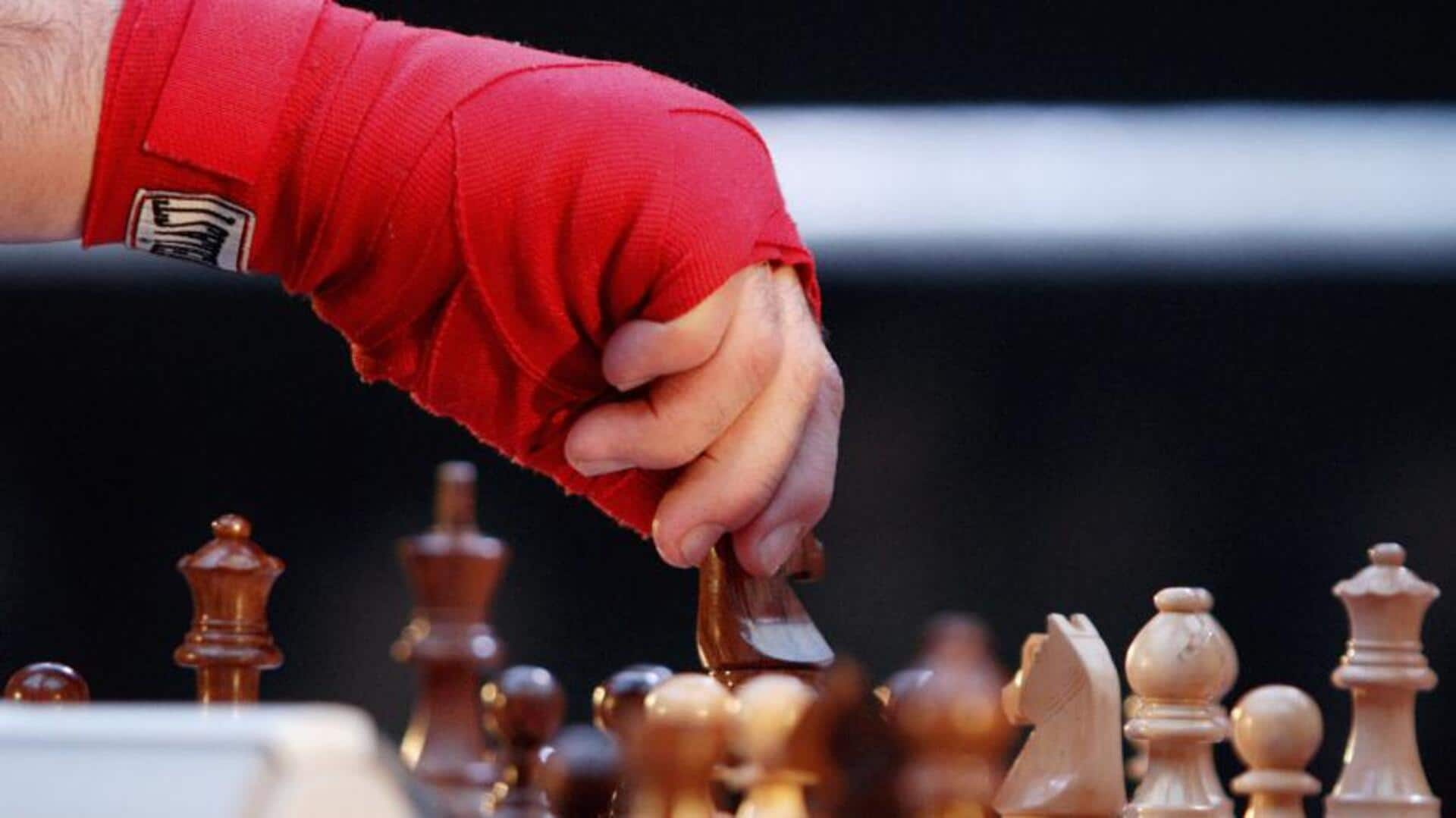
Chessboxing and puzzle races: Sports that promote brain health
What's the story
Chessboxing and puzzle races are two unconventional sports that combine mental and physical challenges, gaining popularity and promoting brain health. Chessboxing, an intense sport that blends the intellectual strategy of chess with the physical demands of boxing. On the other hand, puzzle races require participants to solve puzzles or riddles quickly while navigating different locations. These activities offer a unique way to engage the brain, promoting cognitive function and mental well-being.
Strategy and stamina
Cognitive enhancement through chessboxing
Chessboxing is a unique hybrid sport that combines the intellectual strategy of chess with the physical stamina of boxing. Players alternate between rounds of chess and boxing, requiring them to quickly switch between intense cognitive focus and high-energy physical activity. This dual challenge not only enhances problem-solving skills but also improves concentration and increases processing speed. Plus, the quick task-switching fosters neural plasticity, which is essential for brain health.
Puzzles on the move
Puzzle races stimulate brain function
Puzzle races require individuals or teams to solve intricate puzzles within a set timeframe, often involving movement between various locations or completion of physical challenges. This activity sharpens spatial awareness, strengthens memory recall, and amplifies logical thinking abilities. The fast-paced environment of puzzle races pushes participants to think on their feet, promoting rapid decision-making skills and adaptability.
Mind over matter
Stress reduction with chessboxing
Chessboxing is apparently a great stress buster! The deep concentration during chess rounds helps individuals to disconnect from daily worries and anxieties, offering a mental retreat. The physical activity during boxing triggers the release of endorphins, our body's natural mood enhancers. This dual approach significantly reduces cortisol levels, the stress hormone, fostering a state of relaxation and well-being.
Teamwork triumphs
Social benefits of puzzle races
Puzzle races are inherently social activities as they require teamwork, collaboration, and communication. Working as a team toward a shared goal strengthens social bonds and improves interpersonal skills. Plus, emotional support and motivation from team members can make challenging tasks feel less daunting. These social aspects of puzzle races are beneficial for mental health as they help combat feelings of loneliness.
Remembering Moves
Enhanced memory from chessboxing training
Frequent chessboxing participation enhances memory function, as players must recall previous moves during training and competition, and anticipate opponents' strategies in real-time matches. The strategic nature of chess also fosters mental agility, as players visualize sequences, enhancing both short-term and long-term memory capabilities. This improved memory function translates to everyday cognitive tasks, facilitating mental sharpness beyond the game.